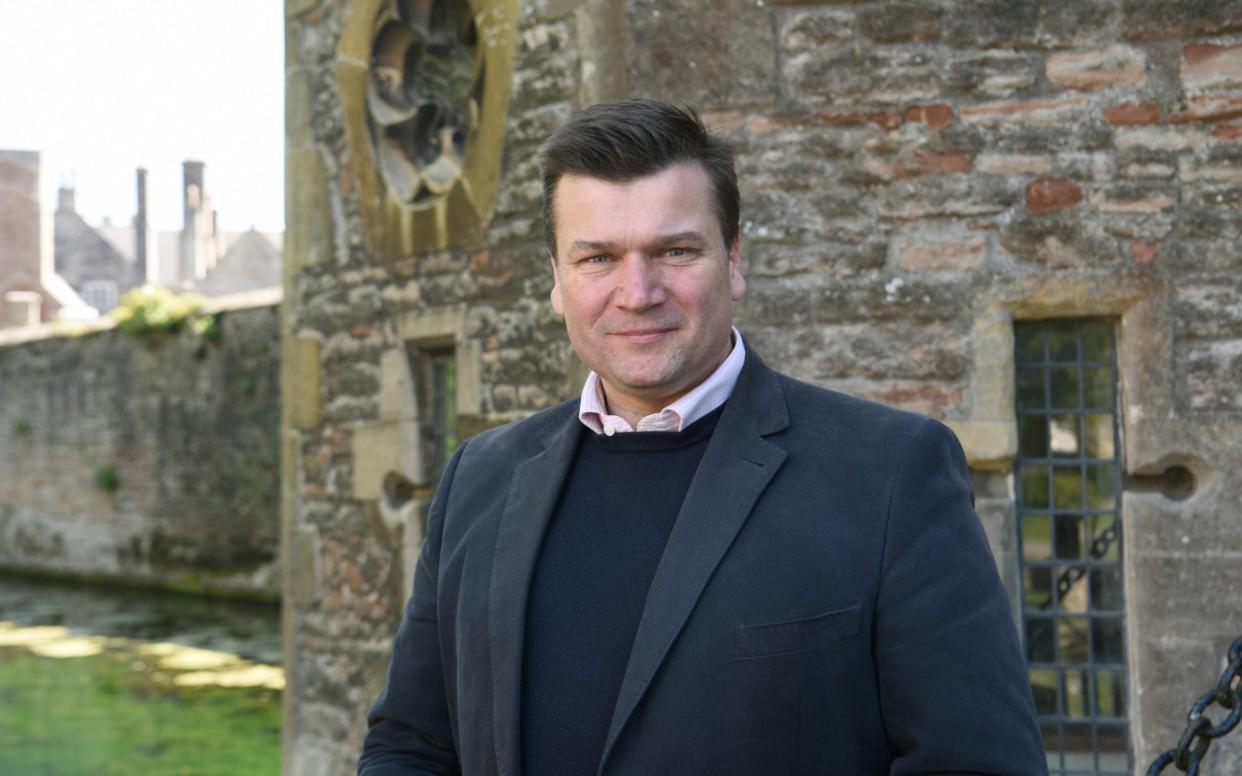Taliban won't get 'free rein' when troops exit Afghanistan, Armed Forces minister says

- Oops!Something went wrong.Please try again later.
- Oops!Something went wrong.Please try again later.
- Oops!Something went wrong.Please try again later.
- Oops!Something went wrong.Please try again later.
When James Heappey, the minister for the Armed Forces, thinks of the 20-year war in Afghanistan, he thinks of kites soaring overhead in Kabul.
“When the Taliban were removed from power, kite flying was a sort of immediate expression of defiance,” Mr Heappey, a former Rifles officer who served two tours in Afghanistan, told The Telegraph.
“When we were in Kabul in those early days, it was amazing. It was a visible expression of people having refound the freedom that had been taken away from them.”
It is this freedom that Mr Heappey insists will not be lost when all 10,000 Nato troops, including 750 British soldiers, leave Afghanistan come September 11.
Mr Heappey feels confident that there is “an understanding on the part of the Taliban, that the world, and Afghanistan has moved on and they cannot come back as if time stood still in 2001, that they just pick up where they left off”.
Whilst under no illusions that over the last two decades Afghanistan has become “a sort of liberal democracy”, he said people were afforded the ability “to live a life of your choosing”.
He said: “There was an opportunity to educate your girls, there was an opportunity for women to play a role in society beyond that of mother and wife. I don't see how that gets washed away, other than by extreme force.”
Mr Heappey cautioned that if the Taliban were to revert to such tactics, the international community would not “stand back”.
“I think that there has to be a political settlement,” he said. “I think the Taliban know that.”
Since troops entered the country in 2001 to find Al Qaida's leader, Osama bin Laden, 2,300 US servicemen and women have been killed, along with over 450 British soldiers, not to mention the hundreds of military personnel from other nationalities who perished, as well as all of those people who suffered life changing injuries.
More than 60,000 members of the Afghan security forces have been killed, while the number of civilians who have died in the “forever war” is nearly double that.
Last week US President Joe Biden announced that the new date for all troops to leave Afghanistan would be September 11, as opposed to the original date of May 1 which was agreed between the former president, Donald Trump and the Taliban.
Mr Biden said: “We went to Afghanistan because of a horrific attack that happened 20 years ago. That cannot explain why we should remain there in 2021.”
However, many have voiced concern that a total withdrawal of foreign troops will lead to civil war on the ground, with Tobias Ellwood, a former Defence Minister, telling The Telegraph “we’ve thrown in the towel”.
“Departing Afghanistan in this manner after so much sacrifice will prompt British veterans and the wider public to ask, what was it all for?”
Mr Ellwood added: “We now face the very real prospect of a civil war and proxy states, including Russia, Pakistan, India and China, pursuing their own agendas and extremism once again filling the power vacuum.”
Mr Heappey insisted that the withdrawal of troops did not mean the West were turning their backs on Afghanistan.
“I think that the circumstances in which a return is most obvious is if we get to the point where there's clear evidence of international terrorism that presents a threat to our homeland, the US homeland or others.”
He cautioned that such a return would not necessarily equate to boots on the ground.
“I think what is more probable is that there is significant firepower that you can launch from the outside in, from the air, and that threat remains,” he added.
“I don't think the Taliban gets to assume that the end of a military presence in Afghanistan brings with it free rein for them to do as they wish.”
Mr Heappey said that it is as much in the Taliban’s interest as the international community for it to adhere to the “international diplomatic expectation”.
“There is a financial reality that they want,” he said. “They want Afghanistan to be able to function as a country and the economy, therefore cannot collapse, the International donations, cannot be stopped.
"And that brings with it some expectations around behaviour, and if they ignore both of those things there is still the reality that there is the ability to whack them really hard remotely. If that's what's required.”
Reflecting on the question that has been asked by many, Mr Heappey is reminded of his “crap tour” with The Rifles in 2009 to Sangin, a town in Helmand province, where they lost 35 soldiers and more than 200 wounded.
“It was horrible, but for all of the blood and gore, because we were there, the market was busier than it would have otherwise been, the school was open, elections happened during the summer that we were there, and cumulatively over time, we gave space for the Afghan government to establish itself and strengthen.”
And of course, families were once more able to take their children upto the King’s Tomb in Kabul, a notable spot for kite flying on Friday afternoons, and engage in a pastime that had been denied to them for so long.
“Fast forward 20 years, I bet that people won't have even remembered not being able to fly kites and that's a rather simplistic, or trivial example, but it reflects that Afghan society has moved on.”

